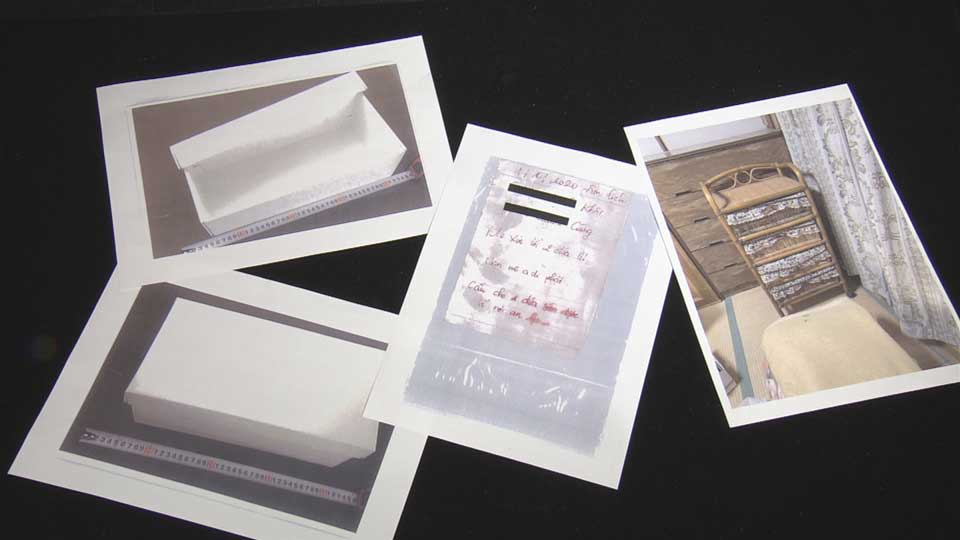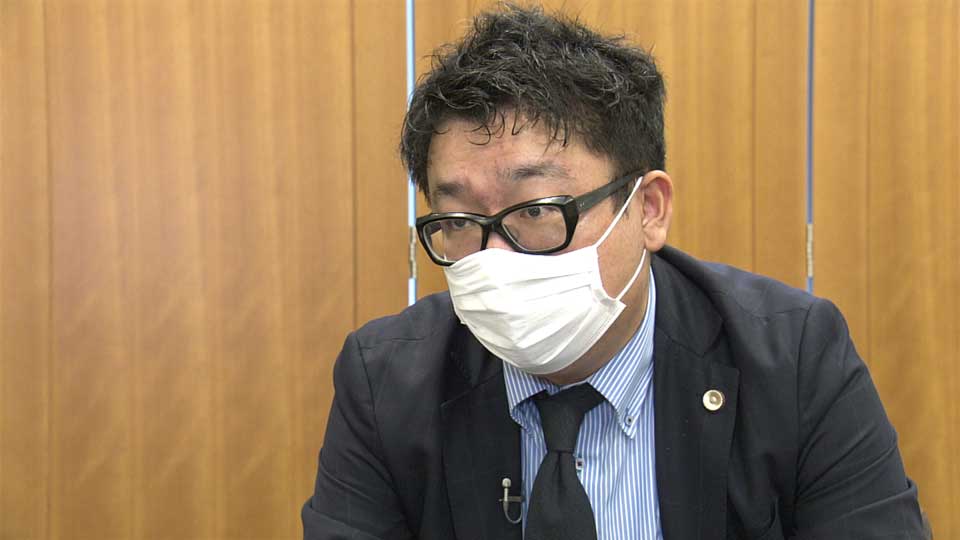Linh's lawyers presented the grounds for her claim on April 11. The 23-year-old has been accused of abandoning and hiding the bodies of her two stillborn babies after giving birth in her dormitory in Ashikita, Kumamoto Prefecture.
Last July, the Kumamoto District Court found her guilty of body abandonment for illegally disposing of her twins' bodies and not fulfilling her obligation to hold a funeral.
Maintaining innocence

At a press conference on April 11, Linh insisted that she "absolutely did not hurt, abandon or hide" her twins.
In August 2018, she began working as a trainee at a mandarin orange farm in Kumamoto Prefecture. On November 15, 2020, she gave birth to stillborn twins, alone in her room. Linh wrapped the babies in a towel and put them in a box. She named them in a note, which also said, "Please rest in peace." She closed the box and put it on a shelf in her room. The next morning, worried about her health, she was taken to the hospital by her supervisor, where she reported the deaths and was arrested.


Linh's lawyer, Ishiguro Hiroki, explains that in most similar court cases, the charge of abandonment has been applied if the body is disposed of away from the defendant or hidden for a long period of time for criminal reasons. Ishiguro says this was not the case with Linh. "She was in the same room as the bodies and kept them for only 33 hours. I do not understand why she was prosecuted in the first place."

Linh appealed to the Fukuoka High Court, which in January overturned the previous decision. It ruled that "the act of keeping the bodies in her room for about 33 hours does not constitute the crime of abandoning them by omission" and that "it can't be said she went beyond the time to fulfill her obligation to hold a funeral."
Still, the court pointed out that the defendant put one box inside another and sealed it with tape "with the will to make it difficult for others to discover the situation." Also considering that Linh had not informed her employer about her pregnancy, the court ruled that she was guilty of trying to hide the bodies.
Linh and her lawyers say she used two boxes and taped them shut using ordinary home-use sticky tape so that her babies would not be cold. The defense team also pointed to Linh's physical and mental distress following childbirth.
Ishiguro argues that the police and prosecutors have not taken into account the difficult situation Linh faced as a technical trainee.

A large majority of technical trainees are under the responsibility of supervising organizations, such as local cooperatives or chambers of commerce. These entities are required to regularly check on their wellbeing and the whereabouts of their work. Linh says she did not believe her organization would protect her from being penalized for getting pregnant and giving birth in Japan. Rather, she believed she would be deported.
The court recognized that Linh had tried to hide her pregnancy in order to continue working and sending money to her family in Vietnam. She had racked up debts of about 1.5 million yen, or $11,600, to work in Japan.
Linh was handed a lighter sentence of three months in prison, suspended for two years.
Technical trainees still under pressure
Support groups say Vietnamese agents that introduce trainees to Japanese companies warn that pregnancy can be a reason for deportation.

Between June 2020 and September 2021, Professor Tanaka Masako of Sophia University in Tokyo surveyed 104 women from Vietnam working in Japan. She found that 38% were told they would be penalized or deported if they got pregnant, including all technical trainees.
"Most trainees are young women in their early twenties, often with little experience of birth control. Most are not married and feel ashamed, not knowing what to do and unable to speak," says Tanaka. "They have borrowed significant amounts of money to come to Japan, so they wait until the very last day they can continue to work." She notes, too, that Linh's twins were born earlier than expected.
Tanaka is working with support groups such as Kumustaka, an NGO supporting foreign women in the Kumamoto region, to develop a web page in five languages, including Vietnamese. They aim to help technical interns and international students know their rights, and also offer information about pregnancy and childbirth in Japan.

Since March 2019, the Organization for Technical Intern Training (OTIT), which oversees Japan's technical intern training, has repeatedly warned companies and supervising organizations that it is forbidden to deport technical interns because of pregnancy.

Nakashima Shinichiro, the head of Linh's support team and the director of Kumustaka, says those warnings have largely fallen on deaf ears. "The problem is that technical trainees are seen as no more than a mechanical work force to be rotated every three or five years," he says.
"A pregnant trainee is considered unable to work, and loses her working visa, with no source of income," he continues. "Pregnant trainees may not be forced to go to the airport anymore, but they are told that it is in their best interest to go back to their country. The measures protecting the rights of technical trainees to give birth are a hypocrisy."
According to a survey by the Minister of Health, Labor and Welfare, there were 637 instances of people having difficulty continuing their technical internship due to pregnancy or childbirth between November 2017 and the end of 2020. Of these, only 11 — less than 2 percent — were able to resume training.
Nakashima says it is the responsibility of the Japanese Immigration Bureau and the OTIT to control and truly crack down on rule breaches, but very few sanctions have been implemented against the supervising entities.

Women's rights at stake in Japan
Linh's team insists her case is not only about trainees. They say it concerns the rights of all women in Japan: "If we can't change the ruling, any woman — foreign or Japanese — may be prosecuted and found guilty if she suffers stillbirth alone and keeps the body as Linh did," says Ishiguro.
"If the Supreme Court upholds the Fukuoka High Court's decision, this could set a devastating precedent for all women in Japan. This is why we want women around the country to react to this case."
And supporters are speaking out. Linh's team of lawyers presented the Supreme Court with 127 testimonies from specialists on women's rights, as well as women who have given birth or have experienced miscarriages. The group also presented more than 86,000 signatures of support.

In a letter, doctors at the Seiryukai Jikei hospital in Kumamoto City testify: "A high-school girl unable to speak about her pregnancy to anyone, could be condemned for giving birth alone to a stillborn baby."
The hospital has been accepting newborns anonymously from women who cannot raise them for fifteen years. 76% of the babies sheltered between April 2017 and March 2020 were brought from women who gave birth alone — more than twice the rate of fifteen years ago. The doctors insist the judgment could interfere with the hospital's operations as women could fear seeking medical help and doctors would have to take legal consequences into account.
Professor Tanaka says people like Linh face discrimination on two grounds: for being foreign, and for being a woman. Tanaka also says it is imperative that social systems adapt. She points out that all pregnant women in Japan have the right to give birth without disadvantage and that whatever circumstances they face, social support is simply a must, regardless of nationality.

"I would never hurt my twin babies," Linh said in tears at her press conference.
Both she and her team know that the chances of winning at Japan's Supreme Court are close to zero. At the same time, they must proceed. Because their cause is about so much more than one woman.

